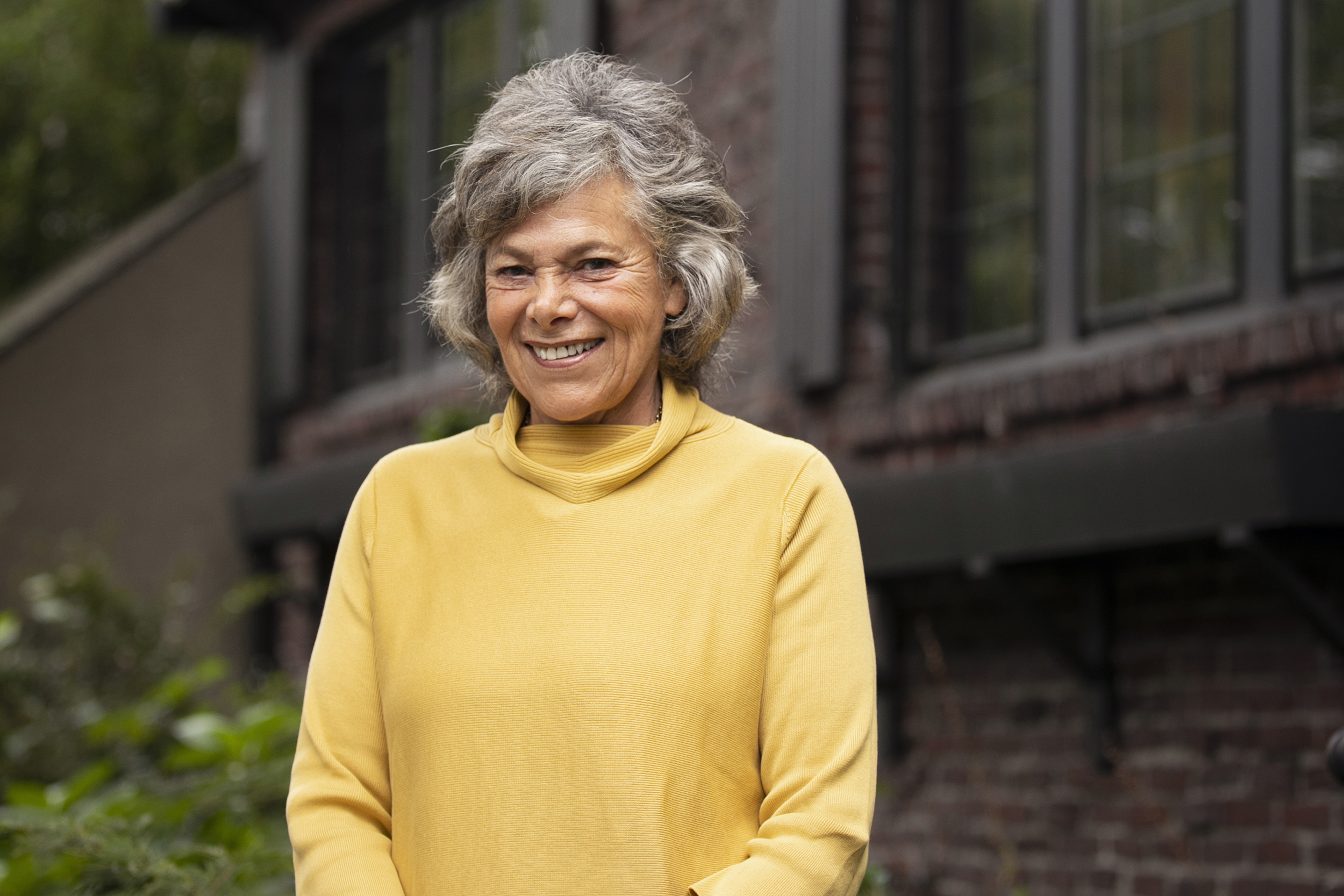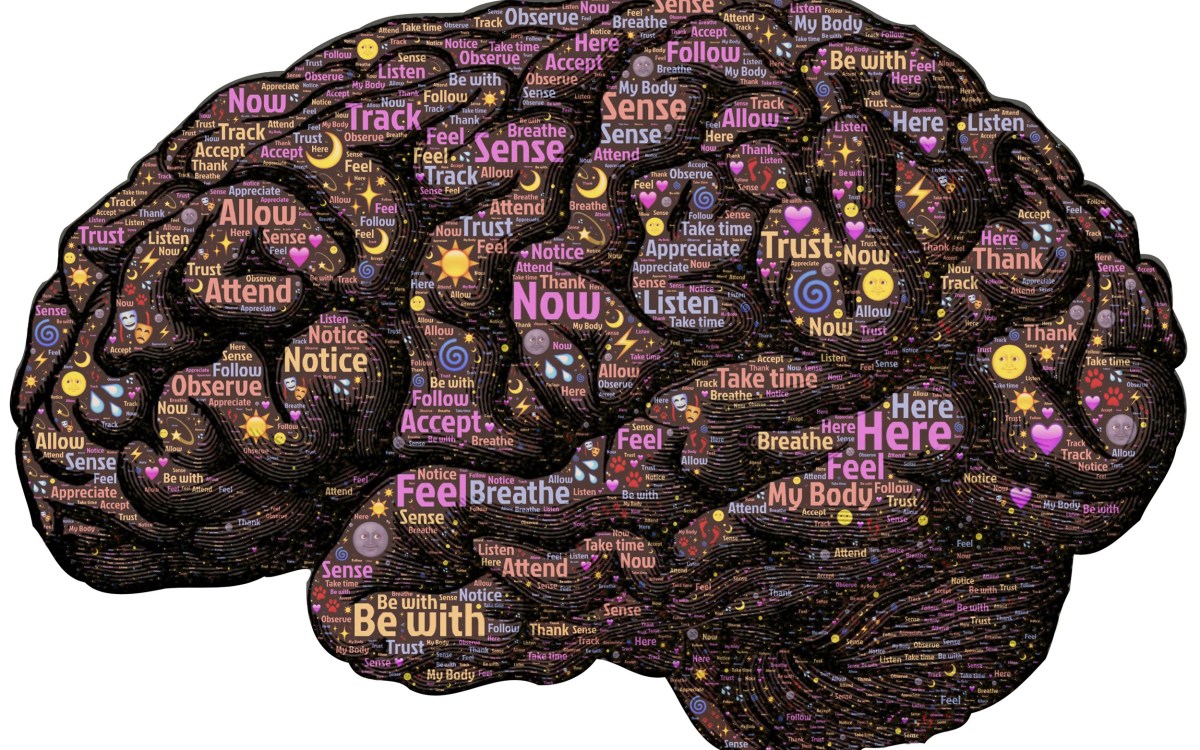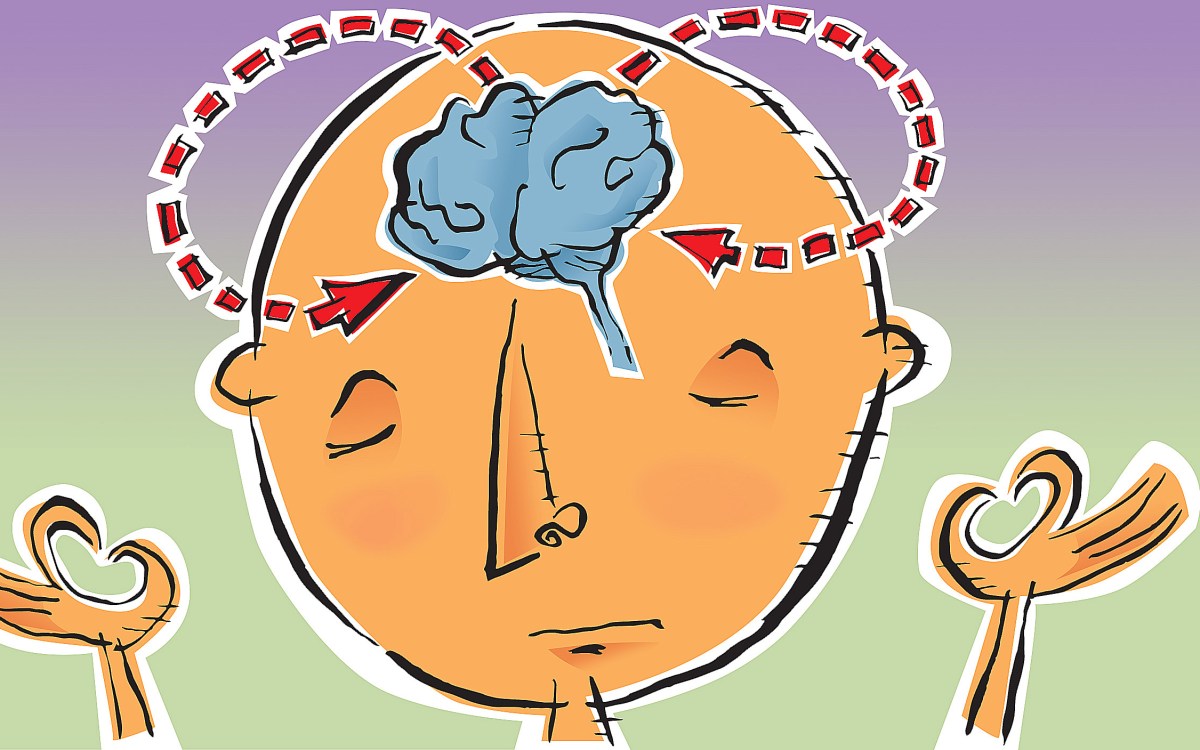
“Being in the present is a very easy thing that comes about by simply noticing new things,” says Professor Ellen Langer.
Stephanie Mitchell/Harvard Staff Photographer
Ellen Langer’s state of mindfulness
Harvard professor has found ‘essence of engagement’ in research
Professor Ellen Langer once apologized when she bumped into a mannequin, the kind of automatic, mindless response she says robs us of the benefits of being mindfully engaged in day-to-day existence.
Langer, the first woman to be tenured in Harvard’s Psychology Department, has spent decades studying both mindless behavior and its opposite, making her the “mother of mindfulness” to many. She spoke to us about the power of psychology, the problem with absolutes, and more.
Q&A
Ellen Langer
Gazette: In your research, you explicitly mention mindlessness in opposition to mindfulness. Can you talk about the difference between the two?
Langer: When I started my work on the topic, back in the early ’70s, I was initially dealing with mindlessness. Most of the people I was seeing, myself included, were doing some strange things. I once bumped into a mannequin and I apologized.
The consequences of being mindless are enormous, and I have 40 years of research to supply evidence that most of us are “not there” much of the time. When you’re mindless, you’re not able to take advantage of opportunities that present themselves, you’re not able to avert danger not yet arisen, you’re not there and you’re oblivious to not being there.
We have a massive amount of data showing when people are mindful they benefit physically, psychologically. You look different to other people when you’re mindful, people can tell when you’re there. It affects you in so many ways. It’s bizarre that, once people become aware of this, they don’t try to be mindful virtually all the time.
Gazette: What is so powerful about being in the present? Is it the engagement?
Langer: Yes. Everybody says “be in the moment,” and that’s nice, but that’s sort of an empty instruction — everyone believes they are in the present. Being in the present is a very easy thing that comes about by simply noticing new things. If you notice new things, you come to see you didn’t know the thing you thought you knew as well as you thought you knew it. That’s when your attention naturally goes to it. It doesn’t just bring about engagement, it is the essence of engagement. It’s literally and figuratively enlivening.
Gazette: We hear a lot today about mindfulness meditation. What is the difference of between mindfulness the way you study it and with meditation?
Langer: First of all, meditation is wonderful. I did some very early research on meditation. But it’s quite different [from what I study]. Meditation is something you engage in to lead to post-meditative mindfulness. Mindfulness as we’ve been studying it the past 40 years is an ongoing act in the moment, so to speak, a way of being. What you’re doing is the process itself.
Gazette: Over the years, you’ve done studies linking mindfulness to, among other things, improved vision, increased longevity, people looking, feeling, and behaving younger. Do you have a favorite experiment to illustrate for readers the work you’ve done?
Langer: One that’s gotten an enormous amount of press is the counterclockwise study. It stems from a mind-body unity idea that I had, and many studies come from this formulation. The idea is to put mind and body back together. Wherever we’re putting the mind, we’re necessarily putting the body.
The first test of this was the counterclockwise study. We put people’s minds in a younger place, then took physical measures and to see what happened to the body. We had people live in a retreat that had been retrofitted to 20 years earlier. They lived there for a week as if the past were right now. The rooms were covered with icons of magazines and television shows from that earlier time and they were going to speak about past events as if they were occurring in the present.
We had another group also at this retreat. But for them, the past was the past and they were going to be reminiscing for the week. Because they were also in a novel environment, doing novel things, they also showed great improvement, but not as great as the experimental group.
The study had a problem in that I didn’t have the funding to do several relevant control groups — a vacationing group and so on — but the results were startling. Most people did not think that older people were going to have improved vision, improved hearing, and look younger.
Gazette: You’ve measured real physiological changes, but what is the limit to this approach? Could you ever imagine recommending someone forgo a medical procedure?
Langer: I would never recommend forgoing any procedure, but rather teach this in addition to whatever they choose to do. They then can decide to go forward or not with some more standard medical treatment; that’s up to them. But the beauty of this work is that, as far as I can tell, there are no negative side effects.
And in my book “Counterclockwise,” I try to make clear at the beginning that if something happened to me I would go to a physician. However, that’s where the similarity between me and what I see as many people would end. You don’t turn yourself over to somebody else because you’re the keeper of all the information — they don’t have all the idiosyncratic information. At the very least we should be partners in our health care.
Gazette: And is that a mindful approach, while a mindless approach would be to go in and say, “Doctor, this hurts, do your thing,” and then sort of tune out?
Langer: Yes, and what the doctors may be doing mindlessly is using probabilistic information, data, as absolutes. There’s no study, no matter what the area — physics, psychology, biology, it doesn’t matter — that yields more than a probability.
That says that if we were to do essentially the same thing — because you can’t do exactly the same thing — we would, much of the time, have the same finding. But that’s often translated as, “If you do this, that will happen.” And, if you know that something is going to happen, there’s no reason to pay attention to it. If you think it may or may not happen, then you’re present.
Gazette: What are the new frontiers of this field?
Langer: “This field” being the field of mindfulness?
Gazette: That, and the broader idea of mind-body connection.
Langer: Not that long ago, the medical model followed in this country suggested that psychology was more or less unimportant. If you were going to have a disease, that disease was caused by some antigen, virus, what have you. The medical model now suggests that psychology does matter. And I think we’re moving to the point — and this is what I’m trying to get the point to move to — where psychology is the most important aspect.
Gazette: Where do you get your ideas from?
Langer: People ask me this all the time. Who knows? I have so many ideas they get in my way. My students go crazy because every lab I come in with another 30 things and their plates are already full.
I think some of it is just noticing. Most of what people believe, what they’ve been taught and read about, they’ve learned mindlessly, they’ve learned as absolute fact. And, as I said before, because everything is always changing and the context is changing, absolutes need to be questioned. And I question them. You say something “has to be” and my first — almost mindless — knee-jerk reaction is, well, “Why?” And, “How might it be other?”
Interview was edited and condensed.









